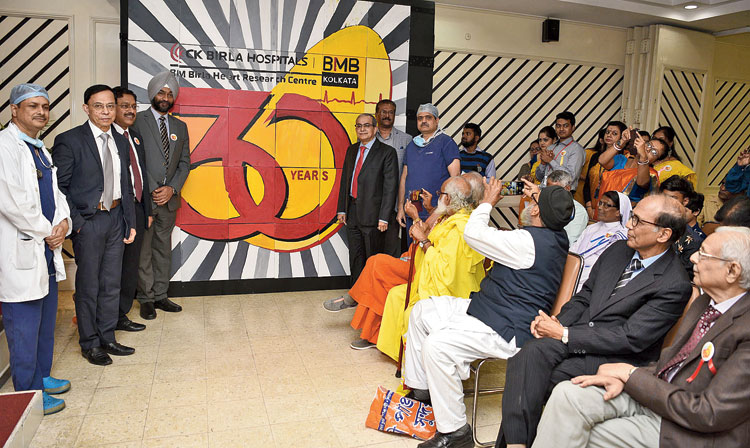The habit of popping antacids for chest pain, even if it persists, could rob one of crucial time in case of a heart attack, several cardiologists said on Monday.
Reaching a hospital within two hours of a heart attack could help prevent damage to the heart muscles. Delay in seeking medical care, on the other hand, could lead to “often irreversible” damage.
“I tell my patients that it is fine to take anti-acid medicines on feeling a chest pain. But if the pain does not reduce by at least 50 per cent in five to eight minutes of taking the medicines, one must visit a hospital to get checked,” said Dhiman Kahali, an interventional cardiologist at BM Birla Heart Research Centre.
Anjan Siotia, another interventional cardiologist at the same hospital, warned that “damage to the muscles starts immediately after the attack and goes on”.
“When an artery gets blocked, blood supply to the portion of the heart served by the artery also stops. The damage to the muscles in that portion starts and if there is no quick intervention to open the artery again and resume blood flow, the damage grows and becomes irreversible,” Siotia said.
The cardiologists were speaking on the occasion of the 30th anniversary of the hospital on Monday. Several patients who were treated at the hospital were also present.
Among them was Jatin Ghatta, who was 22 when he suffered a heart attack in 2011. The resident of Lansdowne said he felt a pain in the chest one afternoon and by evening he was in hospital.
“When I consulted a doctor, he advised immediate admission after examining me. The doctor said I would need a surgery and my parents instantly agreed,” said Ghatta, who had to come to see the doctor with his hands raised because he could not bear the pain of lowering his hand.
Two days later Ghatta, now 31 and working as a production manager with a manufacturing firm, underwent surgery.
“Today I work and go around like anyone else. I have been to Vaishno Devi and also to Tiger’s Nest in Bhutan,” Ghatta said.
Timely intervention can also stop an impending heart attack, doctors said. One cardiologist cited the examples of a former high court judge and a former India footballer, both of who had arrived in hospital within few hours of feeling chest pain and their “impending heart attacks could be prevented”.
The footballer had felt pain in his chest while coaching students. The judge was in court and was immediately taken to the hospital.
The World Health Organisation (WHO) website says “80% of premature heart attacks and strokes are preventable”.
Kahali said a layperson should know certain signs of a heart attack. “There would be severe pain in the central chest area. The patient would feel as if he is going to die. The body parts would be icy cold,” Kahali said.










